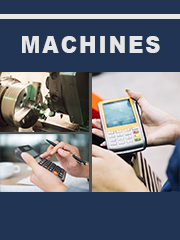Report overview
The global Metal Clad Plate market size was valued at US$ 1.38 billion in 2024 and is projected to reach US$ 1.87 billion by 2030, at a CAGR of 5.2% during the forecast period 2024-2030.
The United States Metal Clad Plate market size was valued at US$ 312.4 million in 2024 and is projected to reach US$ 412.5 million by 2030, at a CAGR of 4.7% during the forecast period 2024-2030.
Metal Clad Plates are composite materials consisting of two or more metal layers bonded together, combining the properties of different metals to achieve superior performance characteristics such as corrosion resistance, strength, and thermal conductivity.
The global Metal Clad Plate market is growing steadily, driven by demand from chemical processing, oil & gas, and shipbuilding industries for materials that can withstand corrosive environments and high temperatures. In 2023, global production of metal clad plates reached approximately 850,000 metric tons, with Asia-Pacific accounting for 45% of production volume. Stainless steel-clad plates remain the most common type, representing 60% of market value, followed by nickel alloy clads at 25% and titanium clads at 10%. The market benefited from increased investments in LNG infrastructure, leading to a 15% rise in demand for cryogenic-grade clad plates in 2023. Technological advancements have focused on improving bonding strength and reducing residual stress, with new explosion bonding techniques achieving interlayer bond strengths up to 450 MPa, a 20% improvement over conventional methods. The market is seeing strong growth in tri-layer and multi-layer clad plates, increasing at 8% annually, driven by their ability to combine multiple material properties for specialized applications. In 2023, stricter environmental regulations in the chemical industry led to a 25% increase in the use of corrosion-resistant clad plates in processing equipment. The industry faces challenges from the high production costs and long lead times for custom clad materials, but the long-term cost benefits in maintenance and equipment lifespan continue to drive adoption. Emerging applications in renewable energy are showing promise, with specialized clad plates for solar thermal and geothermal power plants growing at 12% CAGR, albeit from a small base of 3% market share. Looking ahead, the market is expected to benefit from innovations in clad material combinations and production processes, with next-generation clad plates offering enhanced wear resistance and thermal management properties projected to grow at 7% CAGR through 2030.
Report Overview
Shiploader is a large - scale loading machine used in loading dock.
This report provides a deep insight into the global Port Shiploader market covering all its essential aspects. This ranges from a macro overview of the market to micro details of the market size, competitive landscape, development trend, niche market, key market drivers and challenges, SWOT analysis, value chain analysis, etc.
The analysis helps the reader to shape the competition within the industries and strategies for the competitive environment to enhance the potential profit. Furthermore, it provides a simple framework for evaluating and accessing the position of the business organization. The report structure also focuses on the competitive landscape of the Global Port Shiploader Market, this report introduces in detail the market share, market performance, product situation, operation situation, etc. of the main players, which helps the readers in the industry to identify the main competitors and deeply understand the competition pattern of the market.
In a word, this report is a must-read for industry players, investors, researchers, consultants, business strategists, and all those who have any kind of stake or are planning to foray into the Port Shiploader market in any manner.
Global Port Shiploader Market: Market Segmentation Analysis
The research report includes specific segments by region (country), manufacturers, Type, and Application. Market segmentation creates subsets of a market based on product type, end-user or application, Geographic, and other factors. By understanding the market segments, the decision-maker can leverage this targeting in the product, sales, and marketing strategies. Market segments can power your product development cycles by informing how you create product offerings for different segments.
Key Company
FLSmidth
AUMUND Group
SMB International
FAM Forderanlagen
Metso
Buhler
Thyssenkrupp
Sandvik
Shanghai Zhenhua Heavy Industries
Ameco
Telestack
Takraf
VIGAN Engineering
NEUERO
EMS-Tech
Cimolai Technology
Market Segmentation (by Type)
Mobile Shiploader
Stationary Shiploader
Market Segmentation (by Application)
Commercial Port
Industrial Port
Other
Geographic Segmentation
